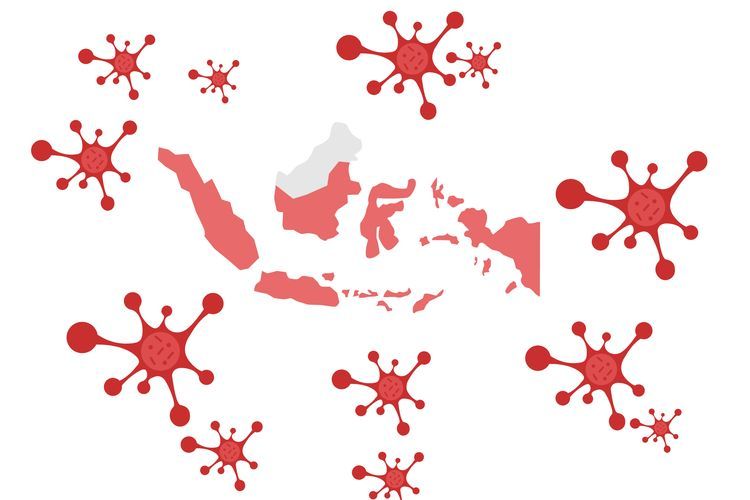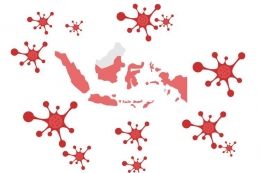Geographic Spread of COVID-19
The world is currently impacted by the coronavirus disease (COVID-19). The outbreak that began on December, 2019 in the city of Wuhan, Hubei province, China has brought many new challenges to public health in various countries. The coronavirus pandemic is a global emergency affecting all countries, requiring immediate and sustained international action.
As of April 20, 2020, the disease has infected more 2.401.152 people, with 165.033 reported deaths. Europe is the worst struck region in terms of case count and fatalities, but major epicenters are growing in North and South America. The global economy has plummeted, as containment and mitigation efforts interrupt manufacturing, education, the financial sector, and many other walks of life.
Pandemics are epidemics that occur in large geographical areas or spread globally. The term pandemic is related to geographical distribution and is used to describe diseases that affect an entire country or the whole world. Indonesia, which is located around the equator with an average temperature of around 27-30 degrees Celsius and humidity ranging between 70-95 percent, apparently still exposed to COVID-19 cases.
Coronavirus disease (COVID-19) cases in Indonesia have skyrocketed since two tested positive on March 2. The number of cases has gradually climbed to 50 between March 2 and 13, doubled to 100 cases by March 17, rose to 300 cases as of March 19, and had reached 790 cases by March 25. Based on data April, 21 reached 7135 confirmed cases with 5677 treated, 616 died and 842 cured (BNPB, 2020). COVID-19 cases remain geographically concentrated in Jakarta (3260) West Java (347), Central Java (449) and East Java (603) case.
This happens everywhere, covering large geographical areas.
Global Governance, International Institution, and Their Influence Toward Indonesia Related COVID-19
Since the World Health Organization (WHO) officially declared the Covid-19 outbreak as a global pandemic after it spread to 118 countries in mid-March, various countries have also been affected. COVID-19 has rapidly spread across the world, profoundly disrupting fundamental activities we all depend on, including agriculture and food systems -- and endangering all those who depend on it as their livelihood.
WHO as an international institution has influence on national policies in Indonesia regarding such a COVID-19 pandemic. On March 26th, WHO issued six prioritised strategies, to be undertaken by governments to cope with the pandemic. The strategies were as follow: Expand, train and deploy health-care workers; Implement systems to find suspected cases; Ramp up production of tests and increase availability; Identify facilities that can be transformed into coronavirus health centres; Develop plans to quarantine cases; and Refocus government measures on suppressing the virus [1]. Lowering and delaying the epidemic peak is important. Uncontrolled measures will lead to the rapid increase in the number of cases, reach the peak earlier and require more capacity of healthcare systems to respond, while stringent control measures implemented early will help to lower the number of cases, delay reaching the peak and need considerably lower capacity of the healthcare systems [4].
However, most countries are caught unprepared to the speed and scale of impacts from the COVID-19. So that several national regulations have been produced by the government at different levels from the president to ministerial levels. The central government has been reluctant to put a lockdown in place because of implementation challenges and the significant socioeconomic costs.
The WHO pandemic declaration related to COVID-19 does not only warn many coutries of the health authorities to implement policies not only to impose travel bans. However, this also includes preparing hospitals for the entry of large numbers of patients, setting up antivirals, informing the public that they need staying at home (Work From Home), always wearing masks, keeping away from social, not traveling, always washing hands and keeping clean, closing tourism and public places, avoiding large gatherings etc.
COVID-19 global pandemic has caused various places in the world, including Indonesia, to call for restrictions on activities. In fact, Indonesia has also published Government Regulation No.21 of 2020 regarding Large-Scale Social Restrictions (PSBB) in the context of handling a corona pandemic. Details on the technical implementation of the PSBB refer to RI Minister of Health Regulation (Permenkes) No. 9 of 2020 where there are restrictions on certain activities of residents in an area suspected of being infected with corona virus disease 2019 (COVID-19) This is an effort to prevent the increasingly widespread spread of health emergencies community that is happening between people in a certain area. The government has adopted various containment measures, including travel bans on foreign nationals, screening at ports of entry, school closures, and other restrictions on public events.
Not only that, one of the most important is the President's Directives 4/2020 (Instruksi Presiden Nomor 4/2020) specifically instructing for refocusing of development activities, reallocation of government budget, and procurement of goods and services for rapid and accelerated response to COVID-19 (Refocussing Kegiatan, Realokasi Anggaran, Serta Pengadaan Barang dan Jasa dalam rangka Percepatan Penanganan Corona Virus Disease 2019) (President Directive (Inpres) 4/2020)
The regulations were issued after 13 March when the President established the Task Force. The head of National Disaster Management Agency (BNPB) was appointed as the commander. Prior to this Decree, national level response had been minimal as indicated by only two sectoral regulations were issued. First was the Health Ministry declaration of Novel 2019-nCov as a disease that outlines potential transform of COVID-19 into an outbreak and what can be done on 4 February 2019. Second, a national declaration of the specific emergency situation of COVID-19 by the head of BNPB on 28 February 2020.
The World Bank also provides has published recommendations to overcome the impact of COVID-19 in the economic sector. So that, Bank Indonesia (BI) as the central bank of Indonesia also issued a policy related to the impact of COVID-19. Bank Indonesia (BI) reduced the policy rate by 50 bps cumulatively in February and March 2020, to 4.5 percent. BI also announced other measures to ease liquidity conditions, including: (i) lowering reserve requirement ratios for banks; (ii) increasing the maximum duration for repo and reverse repo operations (up to 12 months); (iii) introducing daily repo auctions; (iv) increasing the frequency of FX swap auctions for 1, 3, 6 and 12 month tenors from three times per week to daily auctions; and (v) increasing the size of the main weekly refinancing operations as needed. BI also adjusted macroprudential regulation to ease liquidity conditions and support bond market stability. OJK has also relaxed loan classification and loan restructuring procedures for banks to encourage loan restructuring and extended the deadline - by 2 months - for publicly listed companies to release their annual financial reports and hold annual shareholders meetings.
As many of our countries are facing unprecedented challenges from COVID-19 the strain on our governments is extreme, and the impact on people all over the world continues to grow.
Baca konten-konten menarik Kompasiana langsung dari smartphone kamu. Follow channel WhatsApp Kompasiana sekarang di sini: https://whatsapp.com/channel/0029VaYjYaL4Spk7WflFYJ2H







